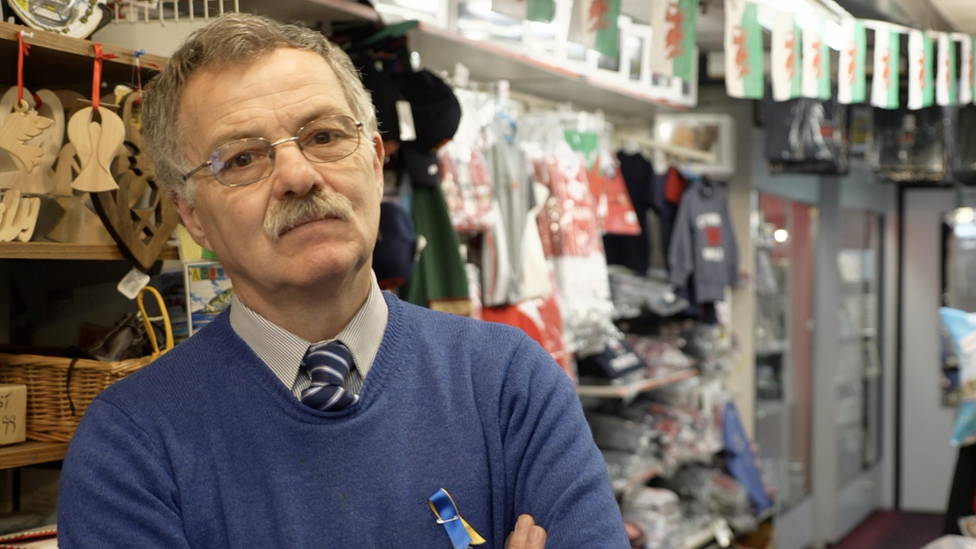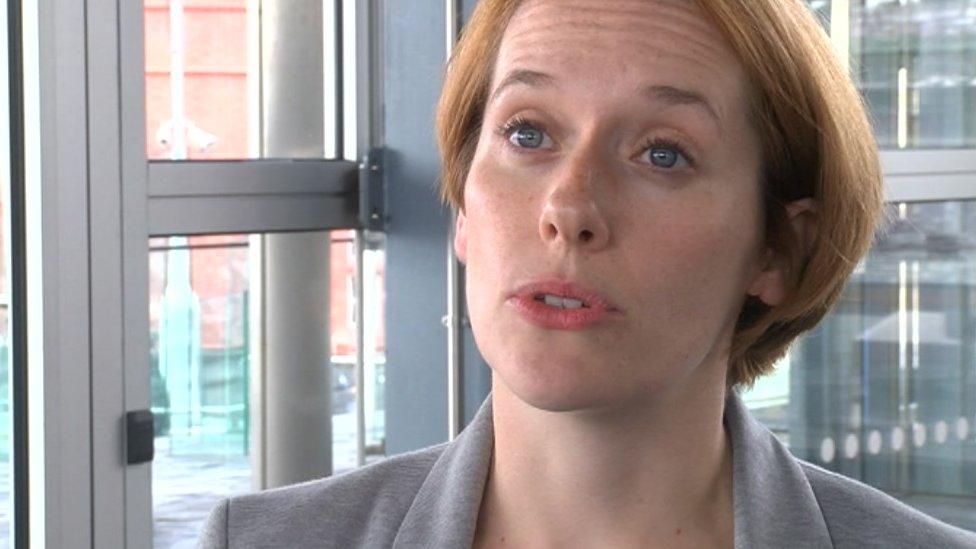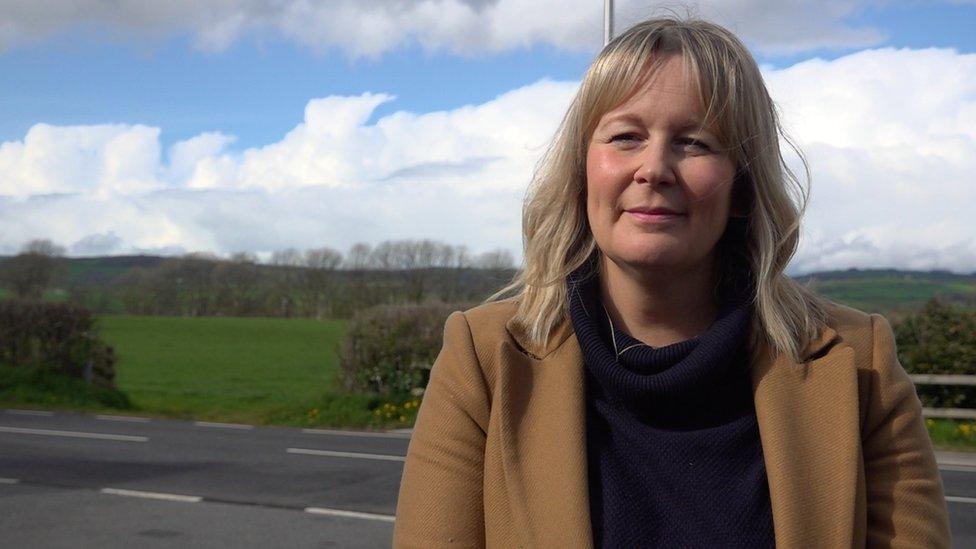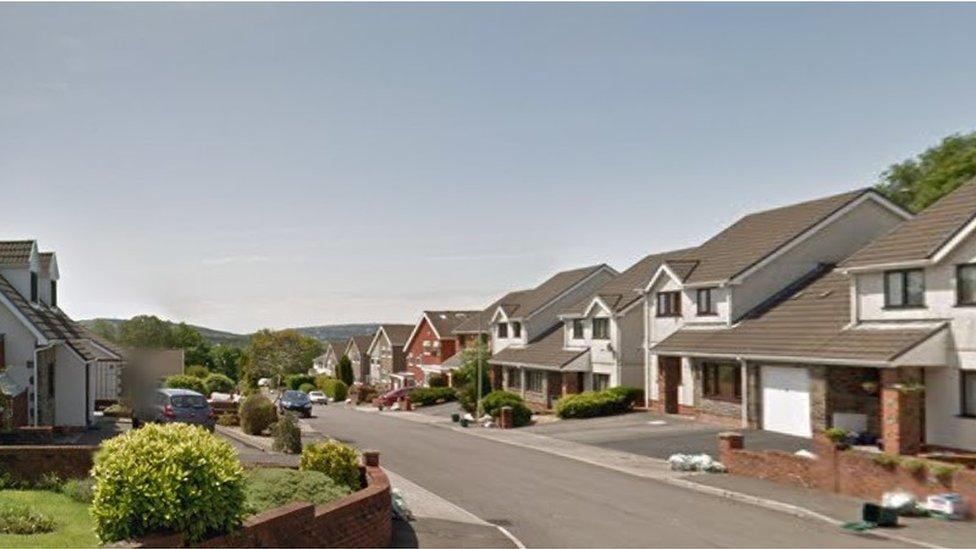Wales elections 2022: Online abuse forcing councillors to quit
- Published

Huw George is leaving Pembrokeshire council after 16 years
Councillors are quitting their seats because of abuse they say they have faced online and from colleagues.
And others are said to be unwilling to stand as election candidates on 5 May because "they don't want the hassle".
Political commentators said politicians were vilified online when they would not be in real life.
Huw George said he was standing down from his Maenclochog seat in Pembrokeshire after 16 years having asked himself: "Do I need this?"
The Baptist minister said he had always welcomed scrutiny of political decisions but personal attacks were unacceptable.
Me George, who is an independent councillor, said: "For the last 16 years, it's been personal attacks. And that's been very hard to take.
"And there comes a time when you ask yourself the question, 'do I need this?'"
Mr George said the decision to leave was difficult because there were jobs he would like to finish.
He said: "I believe in Welsh language education... however, I was ridiculed for that. I was ridiculed because of my Christian beliefs. And I believe that is something that I (should be able to) have without any fuss or bother.
"However, some members don't think that."
The time had come when enough had proved enough.
"When it affects you, your health, the health of your family and your friends, the church where I work, you have to draw the line," he said.
Mr George accepted the necessity of political scrutiny, adding: "But the personal attacks, no."

Ceredig Davies is stepping down as a councillor for Aberystwyth after 18 years
Liberal Democrat councillor Ceredig Davies is stepping down from his Aberystwyth Central ward after 18 years on Ceredigion council, after suffering personal abuse.
He said it was difficult to get new candidates to stand: "People say they don't want the hassle.
"Social media has got its good sides and its bad sides. The good side is as a councillor you can get your message out there. But the bad side is that people can be way over the top with personal comments."
He said he had faced abuse online.
"As a councillor you do take it, but when it impacts on family members that takes it too far, and that has happened," he said.
"And I'm aware that it has happened to other councillors as well."
Political analysts say that being a councillor is less attractive now because of the way councillors are treated, resulting in dozens of uncontested seats in this year's council elections.
Of the 74 uncontested seats in Wales, Gwynedd has the highest number with 28.
That means 41% of wards know who their councillor will be before the election.
In Pembrokeshire, 19 seats are uncontested, or 32% of council wards.
Powys has seven (10%) uncontested seats, eight (14%) in Wrexham, and five (13%) in Ceredigion.
This is fewer than the 92 wards decided without a vote in 2017.
Political commentator Valerie Livingston said uncontested seats were like getting a job without an interview.

Valerie Livingston says courtesy has been stripped out of politics
Ms Livingston, Wales director of political monitors Newsdirect, said it was sad courtesy had been "stripped away" from politics.
She said: "That comes often from social media where we think it's acceptable to make comments that are deeply, deeply hurtful to people who, by and large, are really trying to do their best.
"We wouldn't say these things to people if we met them in the street, but behind a keyboard, you know, over our smartphone, it seems acceptable.
"Admittedly, it's not as bad as as it is at Westminster, where there have been threats to MPs' lives, but it's a really sad, sad thing.
"I would just urge anyone who wants to complain to their councillor to do so in courteous language, because that will probably get a much better result."
Former Senedd member and political consultant Nerys Evans said uncontested seats were a symptom of a "democratic deficit".

Former Senedd member Nerys Evans says uncontested seats are a symptom of "democratic deficit"
She believed good councillors were standing down because they had had enough of "endemic" abuse.
Ms Evans said the rise of social media was partly to blame, along with easy access to councillors.
"You're accessible 24 hours a day to the local community. So that does bring its own problems," she explained.
"I'm not surprised that many really good councillors have decided, actually, they don't want to be doing that anymore."
She added: "It does affect our democracy and how decisions are made. We're not getting the best people putting their names forward because they can see what's happening."

LAST CHANCE TO SAVE: Will Millard explores some of Wales’s hidden historic buildings
CAREER CHANGE WITH A DIFFERENCE: Police new recruits adapt to life on the beat

- Published20 February 2022

- Published2 May 2021

- Published1 December 2021
